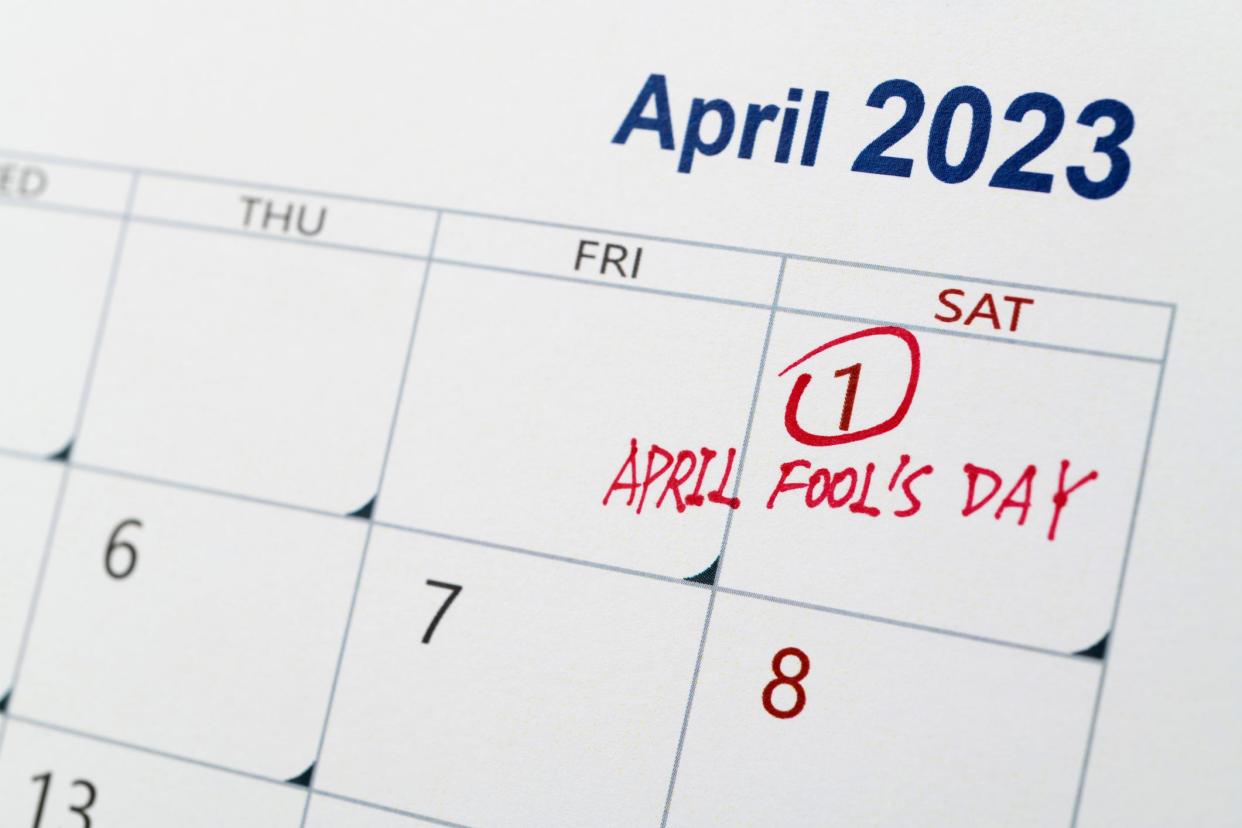Where did April Fools' Day come from? What to know about the holiday

April Fools' Day, every prankster's favorite day, is almost upon us.
The unofficial holiday is observed each year on April 1. This year, it lands on a Saturday.
While April Fools' Day is celebrated around the world with jokes and pranks and has been for centuries, its exact origin is still a bit of a mystery. Here's what you need to know about the holiday and how it started.
Ramadan 2023: When is it? What is it? Everything to know
Seek and ye shall find: A weekly list of Easter egg hunts in Cincinnati 🐣
When is April Fools' Day 2023?
April Fools' Day takes place on Saturday this year. It is celebrated on April 1 every year.
Where did April Fools' Day come from?
April Fools' Day has been celebrated across cultures for centuries, but how it started is not completely agreed upon.
The origin of the holiday is thought to date back to 1582 by some historians, according to the History Channel. That year, France switched from using the Julian calendar, which starts the new year on April 1, to the Gregorian calendar, which restarts on Jan. 1. People who hadn't yet received news that the start of the year had been changed were called "April fools."
Other historians have linked the holiday to festivals like Hilaria, celebrated in ancient Rome, and to the vernal equinox or first day of spring, when weather is often unpredictable.
April Fools' Day was also observed in Britain during the 18th century and celebrated by pulling pranks on others.
Is April Fools' Day a holiday?
April Fools' Day is not a federal holiday in the United States, although it's still common to celebrate the day by playing pranks.
This article originally appeared on Cincinnati Enquirer: April Fools' Day 2023: What's the origin of the holiday?

